Filter by

A grammar of Pichi
Pichi is an Afro-Caribbean English-lexifier Creole spoken on the island of Bioko, Equatorial Guinea. It is an offshoot of 19th century Krio (Sierra Leone) and shares many characteristics with West African relatives like Nigerian Pidgin, Cameroon Pidgin, and Ghanaian Pidgin English, as well as with the English-lexifier creoles of the insular and continental Caribbean. This comprehensive descript…
- Edition
- -
- ISBN/ISSN
- 978-3-96110-133-7
- Collation
- 692 hlm
- Series Title
- -
- Call Number
- -
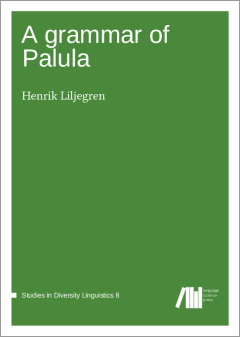
A grammar of Palula
This grammar provides a grammatical description of Palula, an Indo-Aryan language of the Shina group. The language is spoken by about 10,000 people in the Chitral district in Pakistan’s Khyber Pakhtunkhwa Province. This is the first extensive description of the formerly little-documented Palula language, and is one of only a few in-depth studies available for languages in the extremely multil…
- Edition
- -
- ISBN/ISSN
- 978-3-946234-31-9
- Collation
- 493 hlm
- Series Title
- -
- Call Number
- 495.491 LIL g
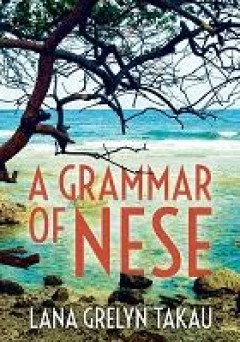
A Grammar of Nese
Nese is a dying Oceanic language spoken on the island of Malekula, in northern Vanuatu. This book, based on first-hand fieldwork data, and without adhering to any particular syntactic framework, presents a synchronic grammatical description of Nese's phonology and syntax. Despite being on the verge of extinction, wi…
- Edition
- -
- ISBN/ISSN
- 9781760465568
- Collation
- 350 hlm
- Series Title
- -
- Call Number
- -

Advanced Spectroscopy Techniques in Food Analysis: Qualitative and Quantitati…
In today's global food market, ensuring both consumer satisfaction and the highest standards of safety is paramount. Food quality analysis covers chemical composition, physical properties, taste evaluation, and even traceability. Traditional methods are often slow, expensive, and eco-unfriendly due to their destructive nature. Here's the exciting part! Advanced spectroscopy techniques offer sol…
- Edition
- -
- ISBN/ISSN
- 9783036585819
- Collation
- 204 hlm; ill., lamp.,
- Series Title
- -
- Call Number
- -
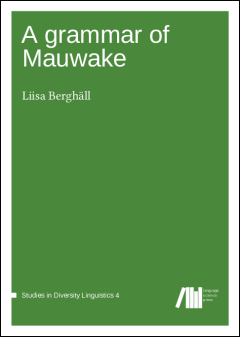
A grammar of Mauwake
This grammar provides a synchronic grammatical description of Mauwake, a Papuan Trans-New Guinea (TNG) language of about 2000 speakers on the north coast of the Madang Province in Papua New Guinea. It is the first book-length treatment of the Mauwake language and the only published grammar of the Kumil subgroup to date. Relying on other existing published and unpublished grammars, the author sh…
- Edition
- -
- ISBN/ISSN
- 978-3-946234-27-2
- Collation
- -
- Series Title
- -
- Call Number
- 499.12 BER g
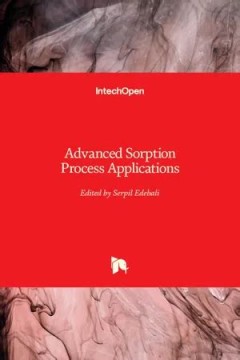
Advanced Sorption Process Applications
At the beginning of the twenty-firstst century, separation processes presented a comprehensive application of the major operations performed by various industries, such as chemical, food, environmental, and biotechnology. Sorption, one of the preferred separation processes because of its effectiveness at different interfaces, has caught the attention of many scientists. This book is aimed at ga…
- Edition
- -
- ISBN/ISSN
- 9781839620294
- Collation
- 218 hlm; ill., lamp.,
- Series Title
- -
- Call Number
- -
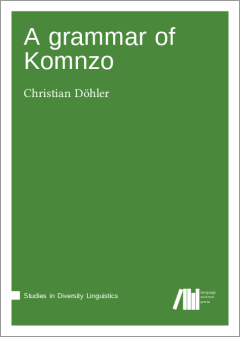
A grammar of Komnzo
Komnzo is a Papuan language of Southern New Guinea spoken by around 250 people in the village of Rouku. Komnzo belongs to the Tonda subgroup of the Yam language family, which is also known as the Morehead Upper-Maro group. This grammar provides the first comprehensive description of a Yam language. It is based on 16 months of fieldwork. The primary source of data is a text corpus of around 12 h…
- Edition
- -
- ISBN/ISSN
- 978-3-96110-125-2
- Collation
- -
- Series Title
- -
- Call Number
- 499.12 DOH g
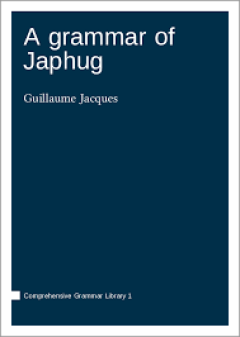
Superseded: A grammar of Japhug
Japhug is a vulnerable Gyalrongic language, which belongs to the Trans-Himalayan (Sino-Tibetan) family. It is spoken by several thousand speakers in Mbarkham county, Rngaba district, Sichuan province, China. This grammar is the result of nearly 20 years of fieldwork on one variety of Japhug, based on a corpus of narratives and conversations, a large part of which is available from the Pangloss …
- Edition
- -
- ISBN/ISSN
- 978-3-96110-305-8
- Collation
- 1551 hlm
- Series Title
- -
- Call Number
- -

Advanced Silicon Carbide Devices and Processing
Since the production of the first commercially available blue LED in the late 1980s, silicon carbide technology has grown into a billion-dollar industry world-wide in the area of solid-state lighting and power electronics. With this in mind we organized this book to bring to the attention of those well versed in SiC technology some new developments in the field with a particular emphasis on par…
- Edition
- -
- ISBN/ISSN
- 9789535121688; 9789535163855
- Collation
- 258 hlm; ill., lamp.,
- Series Title
- -
- Call Number
- -

Advanced Signal Processing Techniques Applied to Power Systems Control and An…
The work published in this book is related to the application of advanced signal processing in smart grids, including power quality, data management, stability and economic management in presence of renewable energy sources, energy storage systems, and electric vehicles. The distinct architecture of smart grids has prompted investigations into the use of advanced algorithms combined with signal…
- Edition
- -
- ISBN/ISSN
- 9783039361861; 9783039361878
- Collation
- 252 hlm; ill., lamp.,
- Series Title
- -
- Call Number
- -
 Computer Science, Information & General Works
Computer Science, Information & General Works  Philosophy & Psychology
Philosophy & Psychology  Religion
Religion  Social Sciences
Social Sciences  Language
Language  Pure Science
Pure Science  Applied Sciences
Applied Sciences  Art & Recreation
Art & Recreation  Literature
Literature  History & Geography
History & Geography